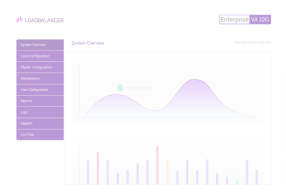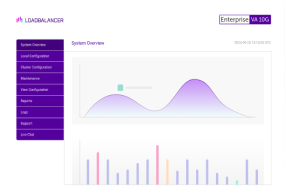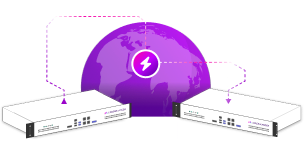
You’re moving over to Amazon Web Services (AWS), where you know you’ll find a broad set of global cloud-based services. These services help organizations like yours to move faster, lower IT costs, and scale. AWS allows services to be deployed as and when required, and charges are made for what is used, making it an extremely flexible and cost-effective solution. So far, so good.
Because Amazon Web Services are great, it may seem like the obvious choice to use their load balancing products as well. But the truth is, this might not always be the best option for your business.
AWS load balancers: Gotta catch ‘em all
AWS has released three types of load balancer - CLB (Classic Load Balancer), ALB (Application Load Balancer) and NLB (Network Load Balancer). As a customer, you are likely to buy one of these for its basic functionality, and then realize pretty soon that you need another one to do something else. For example, you’ve chosen Amazon’s NLB because you initially only need basic Layer 4 load balancing. However, you later realise that you also need to inspect traffic and manipulate content, so you have to switch to Amazon’s ALB. This all takes extra time, effort and possibly money.
In fact, as your business grows and your needs change, you will almost inevitably end up with all three load balancers. This ‘catch ‘em all’ approach is completely unnecessary when you realize that one Loadbalancer.org product, Enterprise AWS, easily fulfills the function of all three. Just take a look at the comparison table below.
| Feature | Amazon products | Loadbalancer.org product | ||
|---|---|---|---|---|
| Application Load Balancer | Network Load Balancer | Classic Load Balancer | Loadbalancer.org | |
| Protocols | HTTP, HTTPS | TCP, TLS | TCP, SSL/TLS, HTTP, HTTPS | TCP, UDP, SSL/TLS, HTTP, HTTPS |
| Platforms | VPC | VPC | EC2-Classic, VPC | VPC |
| Health checks | ||||
| CloudWatch metrics | ||||
| Logging | ||||
| Zonal fail-over | ||||
| Connection draining | ||||
| Load Balancing to multiple ports on the same instance | ||||
| WebSockets | ||||
| IP addresses as targets | ||||
| Lambda functions as targets | ||||
| Load balancer deletion protection | ||||
| Path-Based Routing | ||||
| Host-Based Routing | ||||
| Native HTTP/2 | ||||
| Configurable idle connection timeout | ||||
| Cross-zone load balancing | ||||
| SSL offloading | ||||
| Server Name Indication (SNI) | ||||
| Sticky sessions | ||||
| Layer 7 advanced routing | ||||
| Full reverse proxy capability | ||||
| Hardware appliance option | ||||
| Unlimited throughput (non-metered) | ||||
| Global load balancing / GSLB | ||||
Why use Enterprise AWS?
We have an increasing number of customers who are using Enterprise AWS for load balancing their applications in the AWS cloud. Thanks to the flexibility of both AWS and our appliance, it's possible to configure a secure and robust load balanced services deployment to suit a range of requirements. The latest version enables both Layer 4 and layer 7 virtual services to be quickly and easily configured.
Enterprise AWS can be deployed as a single instance or as an HA clustered pair for high availability and resilience. It's also possible to deploy two instances in different AZ's for high availability using a primary/secondary master model rather than the master/slave model. Enterprise AWS is based on our main hardware/virtual product and has almost identical features. There are certain differences due to the way the Amazon EC2 environment works.
As you plan for your infrastructure to evolve going forward, Enterprise AWS keeps the process simple. If you’re planning to migrate platforms, for example, you can use the same load balancer in the cloud, on prem or in a data center. Our solution is designed for flexibility and scalability, so there’s no need to worry about what other products you’re going to need.
Superior support
Using Enterprise AWS instead of CLB, ALB and NLB means all the convenience of one charge for one product. More crucially, though, it also means getting access to a different quality of support.
With a huge company like Amazon, the support culture almost inevitably becomes oriented around meeting KPIs. That means that engineers are motivated to get the customer off the phone as quickly as possible so that they can close the case. By contrast, even though Loadbalancer.org is growing rapidly, we’ve retained the philosophy that set us apart from the beginning. Personalized support means that all of the customer’s needs get our full attention, however long it takes. Our support team isn’t tiered, so every customer speaks to an expert straight away.
Enterprise AWS comes out ahead on the basis of its features, and the convenience that it offers. But its flexibility, scalability and superior support which truly set our solution apart.
If you have any questions about the above, please don't hesitate to get in touch.
















